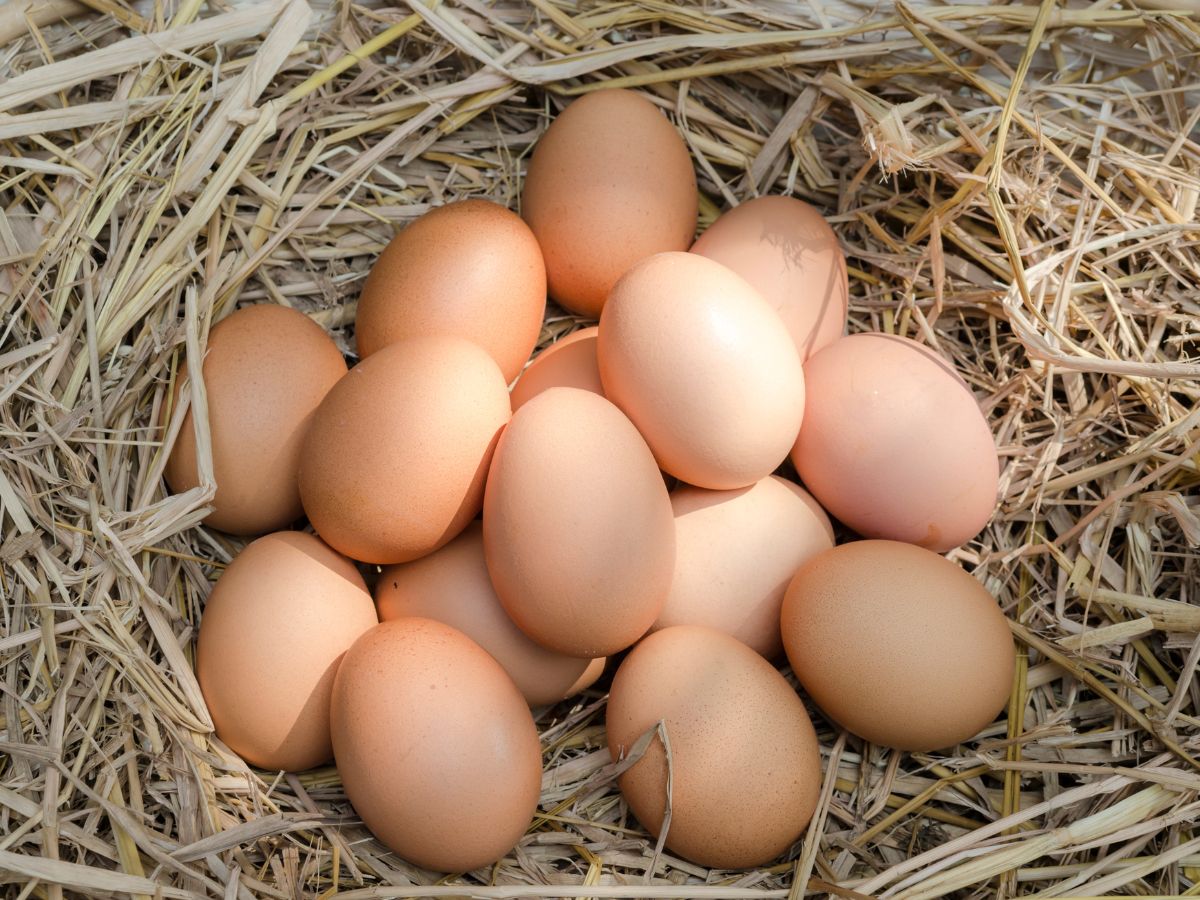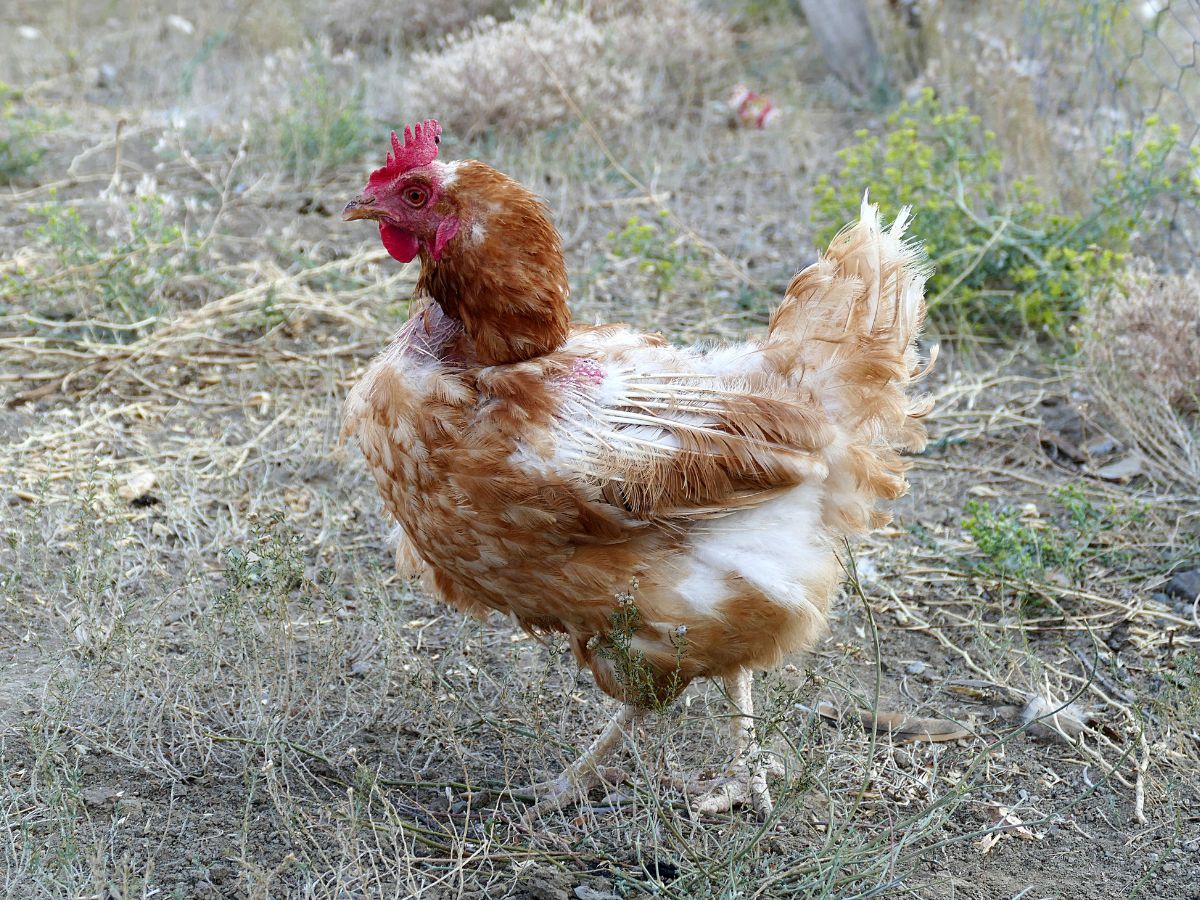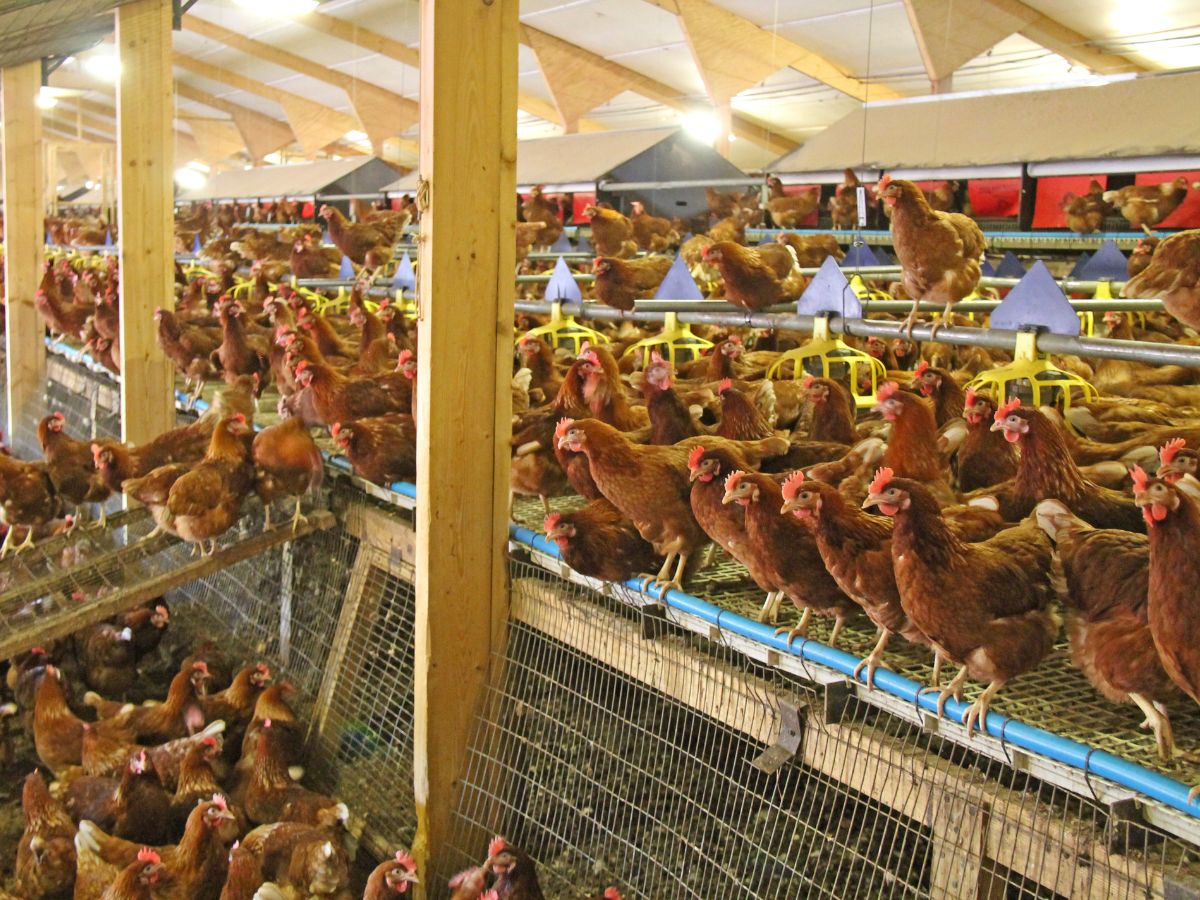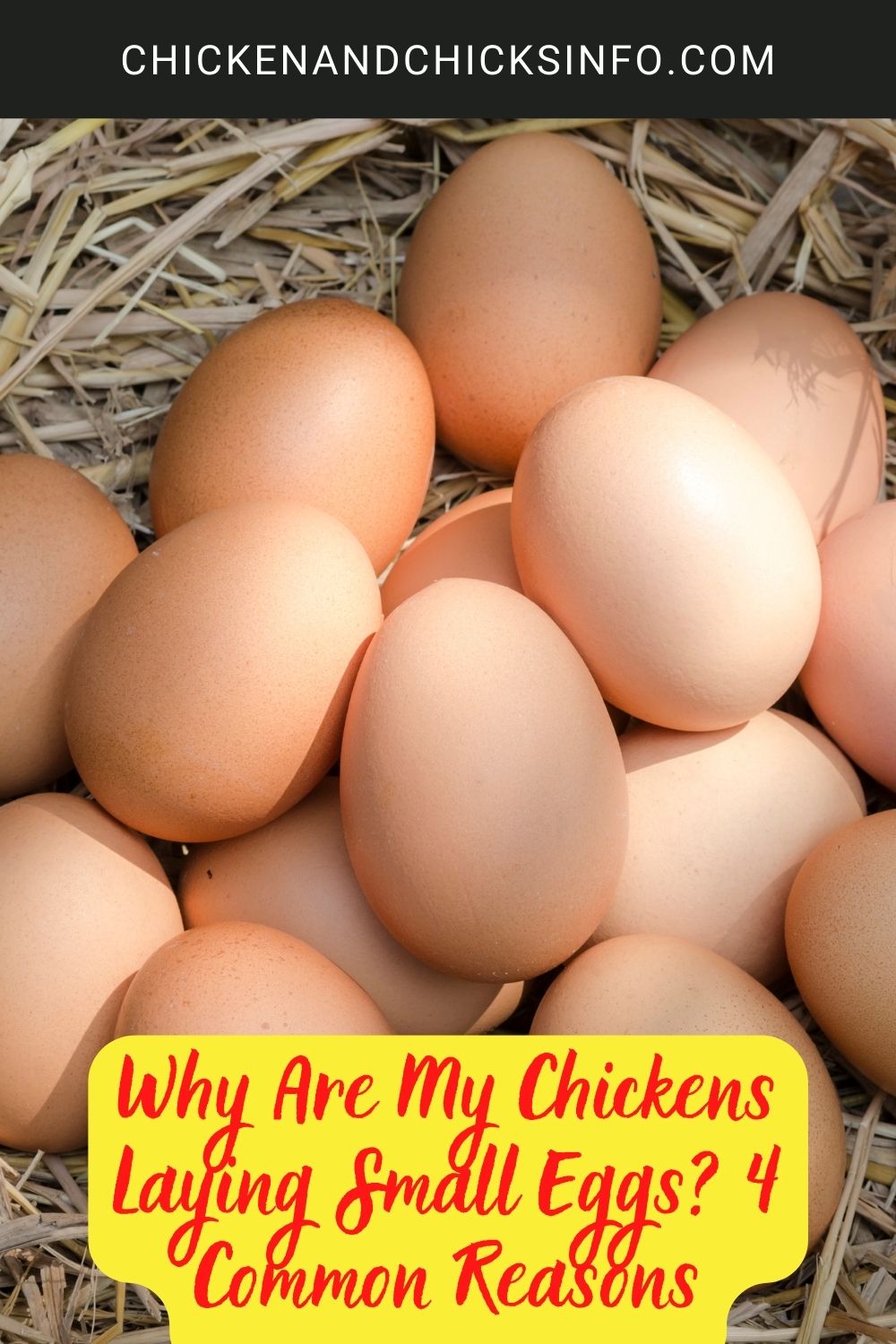
One of the best reasons for keeping backyard chickens is the constant flow of tasty fresh eggs, right!
So, it can be pretty frustrating when your hens are laying small eggs. Especially when you’ve been told your breed should be producing large or jumbo eggs.
The reason behind it may or may not be in your control. Let’s take a look at some of the most common reasons why hens lay small eggs:
Why are my chickens laying small eggs? The most common reasons why chickens lay small eggs are; due to their age, nutrition, genetics, breed, stress, and other environmental issues.
Here is an explanation of how each of these factors can affect the size of the eggs your hens are laying, and what you can do about it:
Nutrition
Nutrition plays a huge part in the size, quality, and most importantly the taste of eggs.
Looking at the larger picture, good nutrition means happier and healthier chickens, so it’s something you should take seriously at all times.
You can feed layers pellets from 16 weeks of age. Layers pellets are formulated for laying hens. They provide the correct balance of nutrients a laying hen needs to produce the best eggs they can.
Ideally, your chickens are also roaming free-range. If not, you should provide some grass, oyster shells/grit, grains, and other scraps for them in their run.
You want to add some variety to their diets. Vegetables and fruits provide a lot of minerals, vitamins, and other nutrients that help round out their diets.
There are specific laying issues that are related to specific dietary issues, such as soft eggs as a result of a calcium deficiency. But generally speaking, it’s about providing a complete range of nutrition if you want to receive the largest eggs your girls can lay.
Age

When a hen starts laying, they will always start by laying smaller eggs. This shouldn’t be a surprise when you think about it, you can’t produce the perfect egg first time.
The age in which a pullet or point-of-lay chicken will start laying eggs will vary depending on the age of the hen, the breed and individual condition of the chicken is also a factor.
The average age a chicken starts laying is around 6 months. Prolific laying breeds like Leghorns, Sex Links, Golden Comets, and Australorps usually start laying as soon as 16-18 weeks.
The general rule of thumb is that the heavier the chicken, the later they will start laying. This isn’t always a fact, but it’s something to go by.
Related content - How long do pullets lay small eggs for?
Genetics and Breed
As I mentioned above, the breed and genetics of a bird also play a part in determining how large the eggs are they can produce.
For example, some of the breeds of chicken that lay large to jumbo eggs include:
- Leghorns
- Lohmann Browns
- Minorcas
- Barnevelders
- Golden Comets
There are some breeds that are on the smaller side and will lay smaller eggs. But if you’re getting really small eggs, it might be because you have a Bantam chicken.
Bantams are chickens that are much smaller than regular chickens. Sometimes they have larger fowl counterparts that are full-size, and some bantams are “true bantams” which means they are just a very small breed.
Some of the most common breeds of bantam include:
- Belgian Bantams
- Pekin Bantams
- Japanese Bantams
- Brahma Bantams
- Dutch Bantams
Related content - What is a Banty chicken (Bantam)?
Environmental Issues and Stress

Chickens are very susceptible to stress and other environmental conditions affect their quality of life - and this has a direct impact on the quality of their eggs. Both in size and consistency.
It’s no secret that hens are at their happiest when they are free-range and have plenty of space to explore and forage in.
I appreciate this isn’t always possible. You might not have space in your yard, a lot of backyard flock keepers live in urban settings.
Those that do have a lot of outdoor space also have to be mindful of predators. It’s hard being a chicken sometimes!
At a minimum, you should have an adequately sized coop and run. Their coop should have roosting perches, nesting boxes, and nice soft bedding that’s kept clean.
If you can allow them to roam freely too, awesome.
This, combined with great nutrition, no threats from predators, and no internal issues such as pecking and fighting with each other - and you should have some happy and healthy chickens!
In Summary
As you can see, there are a few possible reasons why your birds may be laying smaller than average or expected eggs.
Most of which are nothing to worry about. Some you cannot do anything about, such as if you own a bantam. But some of the reasons are within your control.
At the very least, it doesn’t hurt to take a look at the health and living conditions of your chickens and see if you can improve their standard of living.





